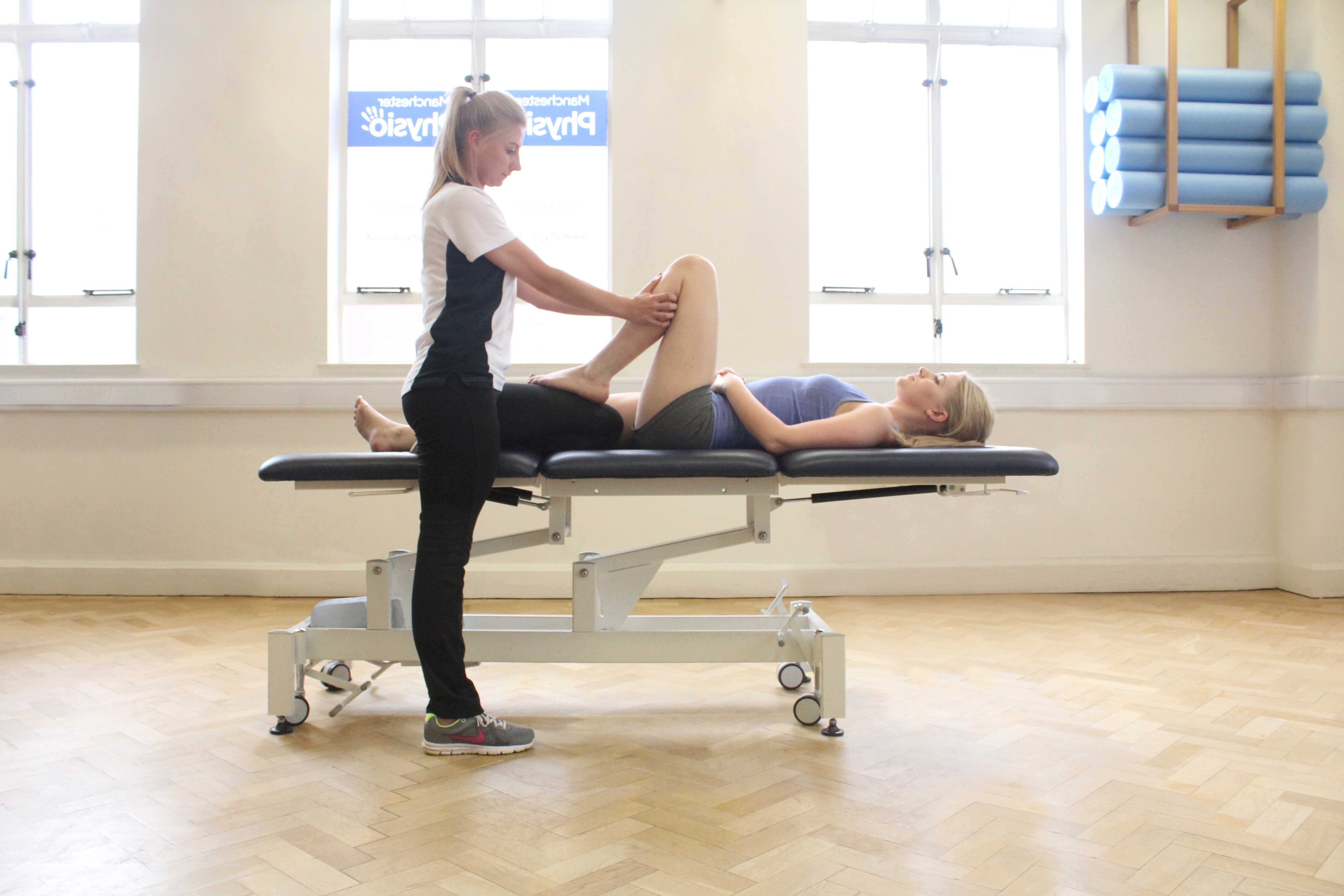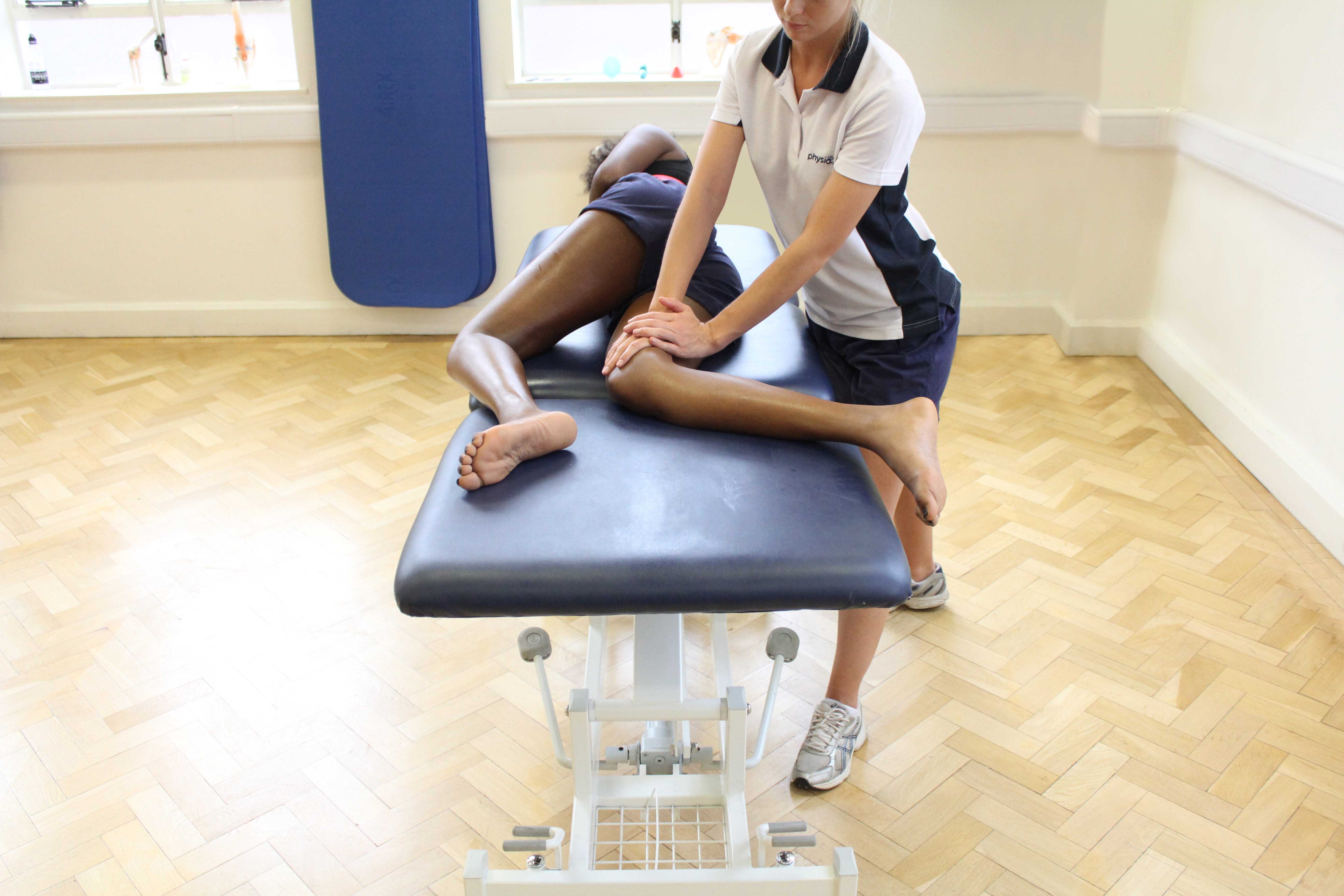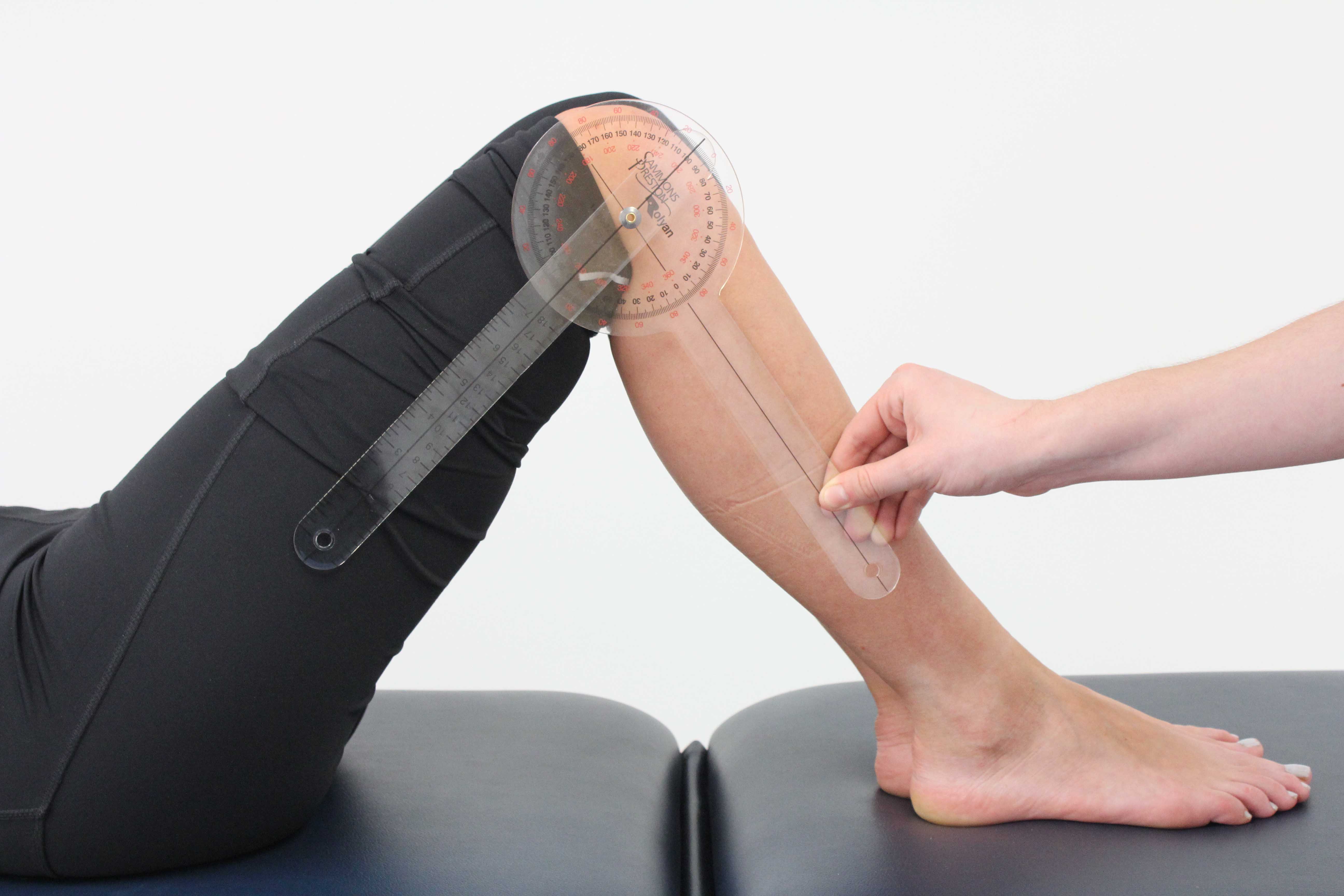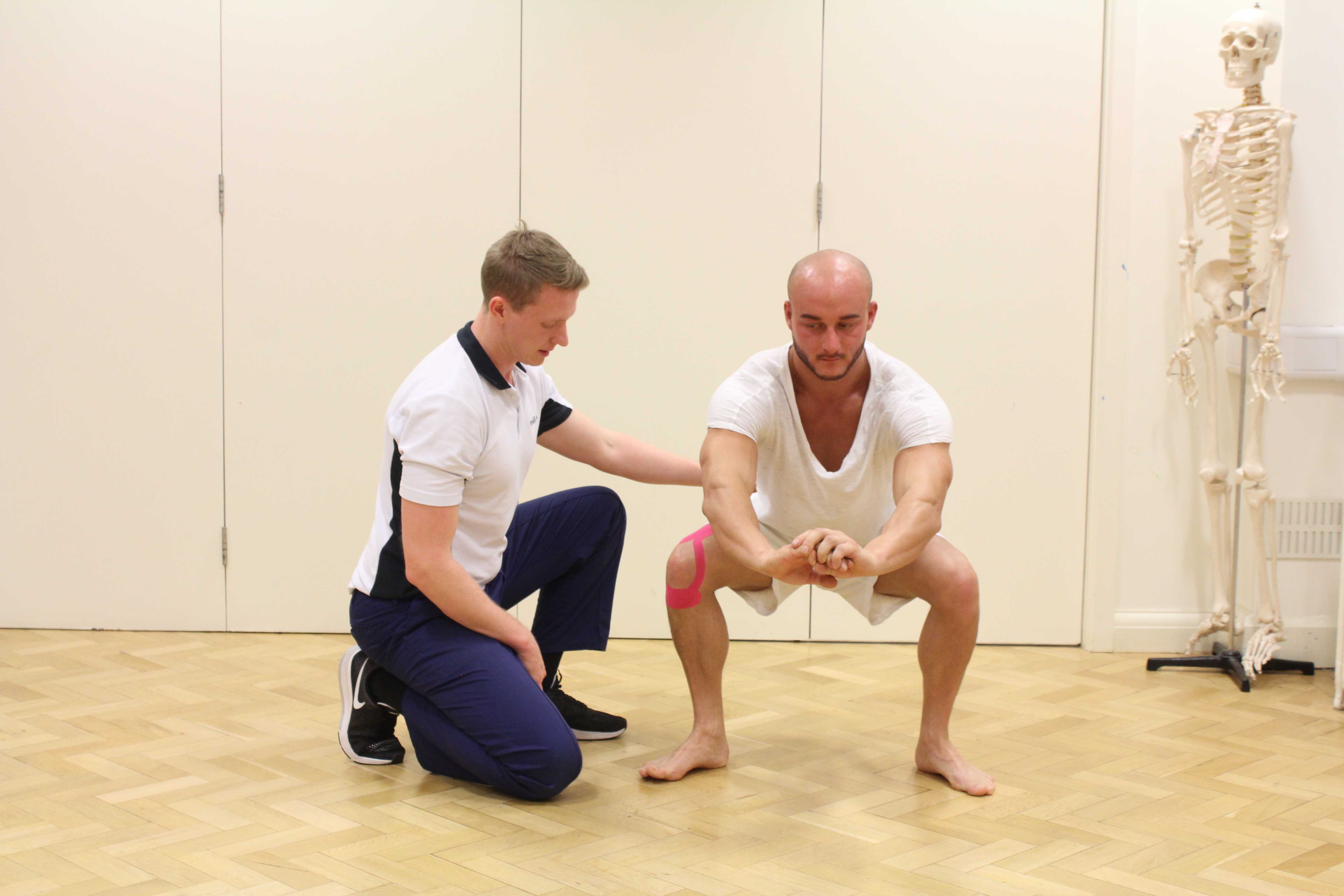ACL Surgery Physiotherapy
Anterior cruciate ligament (ACL) surgery is the reconstruction or repair of the ACL ligament that may be required if the ACL has been injured or torn probably due to a sports injury, trauma or fall.
If the ACL has been torn, one of the main problems experienced is weakness and instability of the knee and is known as an unstable knee. This may feel as if the knee is about to ‘give way ‘. ACL surgery will help make the knee feel stable again and limit its loss of function. Surgery will also help prevent further damage such as another injury or arthritis.
Additionally, ACL surgery offers a near normal knee that allows the return to normal daily tasks, work and any kind of hobbies, exercise or sporting activities.
The aim of the surgery is to reconstruct the torn ligament using grafts from one or more different tendons taken from a choice of various donors. These can be taken from another part of the body or artificial donors can be used. The surgical options that can be used are listed below;
 Above: Mobilisations of the knee joint by a MSK therapist
Above: Mobilisations of the knee joint by a MSK therapistACL surgery options:
- Graft Choices – what is used for the reconstruction:
- Autografts - donor from another part of own body
- Allograft - donor from another person
- Synthetic - artificial donor
- Donor Site - where the graft is taken from:
- Bone-patellar tendon-bone (BPTB)
- Quadrupled hamstrings (Semitendinus & Gracilis)
- Quadriceps tendon
- Achilles’ tendon
- Hamstrings
- Quadriceps tendon
- Fascia lata
- Graft Fixation- how the graft is secured:
- Screws (Biodegradable and Metalic)
- Transfix Pin
- Crosspin / transfix
- Endobuttom Loop
- Scaffhod / matrix
- Bundles – how the graft is made:
- One bundle – less expensive with quicker surgery time
- Two bundle – more expensive and a better quality of graft that resembles the ACL more
 Above: Massage of the connective tissues around the knee joint
Above: Massage of the connective tissues around the knee jointPhysiotherapy for ACL surgery
Pre surgery physiotherapy
Physio.co.uk recommends that you have pre operative physiotherapy immediately after you have suffered an ACL injury as this will help better prepare your knee for surgery. The aim of physiotherapy treatments before your surgery is to regain as much range of movement in the joint as possible, reduce swelling, reduce pain and achieve full or near to full weight bearing. This is made possible by stretching and strengthening the muscles around the knee. Additional strengthening of muscles in other joints including your hip and your ankle joint is also necessary to account for the loss of function in your knee.
Symptoms post surgery
Symptoms that you will experience immediately after ACL surgery will include pain, swelling, reduced mobility, stiffness, muscle weakness, loss of proprioception (balance) and reduced muscle control in and around your knee.
After surgery you will be unable to drive and you will be given elbow crutches. In some cases, splints will also be used for comfort while also limiting your knees movement for necessary protection in the initial stages after your surgery.
Post surgery physiotherapy
A Physiotherapy rehabilitation programme after surgery is vital in regaining full function of your knee.
The main aim of treatment in the early stages after ACL surgery is to reduce pain, swelling, restore full range of motion and your ability to weight bear.
In later stages of physiotherapy treatment, your rehabilitation programme with Physio.co.uk aims to restore pre injury function by increasing muscle strength in and around your knee, ankle and hip joints. Treatment also aims to improve joint proprioception (balance), gait and increase muscle endurance.
In the long term after you have had ACL surgery, Physio.co.uk aims for you to return to your pre injury condition using exercises specific to your job, hobbies and sporting activities.
 Above: Knee joint assessment using a goniometer
Above: Knee joint assessment using a goniometerTreatments included in rehabilitation post ACL surgery:
Day 1-Discharge
The goals of the first days after ACL reconstruction are to reduce inflammation and any pain or discomfort. This can be done by regularly icing your knee, elevation and the use of elbow crutches. To provide extra support for your knee and to prevent complications some surgeons recommend the use of a brace or cricket splint in the early stages after ACL surgery.
0-4 weeks
The main goals of rehabilitation during the first month post ACL surgery is to promote early function and increase range of movement. Initial goals also encourage weight bearing and improve muscular strength/ endurance.
Early exercises will include
- Patella mobilisations
- Range of motion exercises to regain the ability to bend and straighten your knee effectively
- Gradually increase weight bearing
- Gait re-education (use of splint and elbow crutches should be reduced)
- Stretching and strengthening exercises for hamstrings, quadriceps, and other major muscle groups in and around knee, hip and ankles
- Static bike with no resistance to improve your mobility, aerobic fitness and muscle endurance
4-8 weeks
The goals for rehabilitation after 4-8 weeks include progression of functional activities and the prevention of joint stiffness, pain in the front of the knee and scar adherence. During this time rehabilitation also aims to improve proprioception (balance and awareness) maintain cardiovascular fitness and further promote appropriate muscle strength, power and endurance.
 Above: Use of taping to assist stability during knee strengthening exercises
Above: Use of taping to assist stability during knee strengthening exercisesExercises include:
- Patella mobilisations
- Gait re-education
- Stretching and strengthening exercises for hamstrings, quadriceps, and other major muscle groups in and around knee, hip and ankles - increase repetitions and resistance depending on tolerance
- Leg curl (hamstrings)
- Leg extension (quadriceps)
- Straight leg raises (quadriceps)
- Squats (progress to one legged)
- Lunges
- Calf raises
- Abduction/adduction
- Wobble board and trampette exercises to help proprioception
- Gym ball and the raband work
- Early plyometrics (jumping exercises)
- Rowing as well as static bike with low resistance for improvements in mobility, aerobic and cardiovascular fitness
- Swimming and hydrotherapy (avoid breast stroke)
- Upper body exercises
8-12 weeks
The main goals of rehabilitation at 8-12 weeks post ACL surgery include the improvement of specific functions as well as increasing muscle strength and control throughout movements. Exercises at this point are continued and progressed (as above) from the earlier weeks and emphasis is shifted to strengthening, gait, balance and proprioceptive exercises
12-16 weeks
The main goals of rehabilitation between 12-16 weeks post ACL surgery are to continue to improve muscle strength and control, proprioception, balance, gait and cardiovascular fitness.
Early sports activities can be incorporated into this phase of rehabilitation and physiotherapy should focus on exercises such as;
- Power walking
- Cycling
- Swimming
- Jogging as tolerated
3-6 months
Goals are now directed towards the promotion of exercises for specific functions and sports. However, in some cases this may be difficult as your knee may not be ready for certain activities even if it feels normal. At a Later stage of this phase, goals will begin to include the preparation of your physical and psychological ability to completely return to unrestricted function.
Exercises will now focus on specific activities such as;
- Jogging
- Plyometrics
- Swimming
- Cycling
- Sprinting
- Change of direction, pivoting and cutting movements (agility)
- Accelerating and decelerating exercises
- Sport specific exercises (e.g. football dribbling, tennis serve)
6-12 months
Goals for the later stages of rehabilitation post ACL surgery will focus on the progression to unrestricted confident function and the continued improvement of sport specific activities.
This will be the earliest return to contact sport with the criteria that you can train symptom free and that you have no residual complications.
Success of rehabilitation
The decision that you can return to unrestricted functions or sporting activities will depend on a number of factors:
- Commitment and adherence to rehabilitation program
- Rate of progression throughout rehabilitation program (too slow or too fast)
- Surgical technique
- Other injuries sustained before, during or after the ACL injury
- Any other underlying health problems e.g. arthritis
- Psychological influences
Summary
ACL surgery is essential to regain stability and full function in your knee whilst also aiding in the prevention of further injuries or damage. ACL surgery offers a near normal knee that will allow you to return to normal daily tasks, work, hobbies and sport. What’s more, Physio.co.uk highly recommends a physiotherapy rehabilitation program post ACL surgery as this will guarantee the return of the full function of your knee so that you can go back to what you love doing the most in as quickly as possible. Call Physio.co.uk on 0330 088 7800 to make an appointment now!

 0330 088 7800
0330 088 7800

































